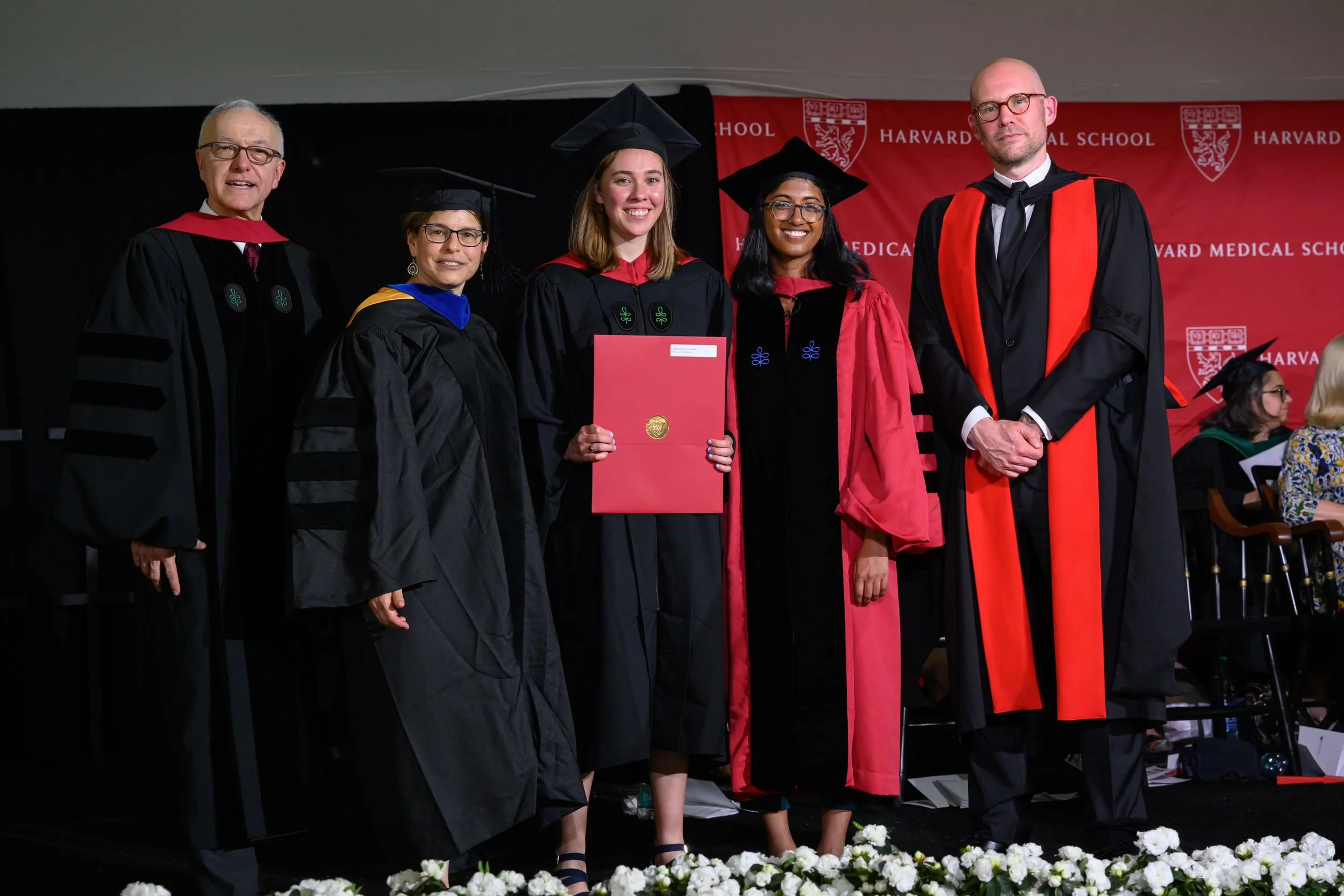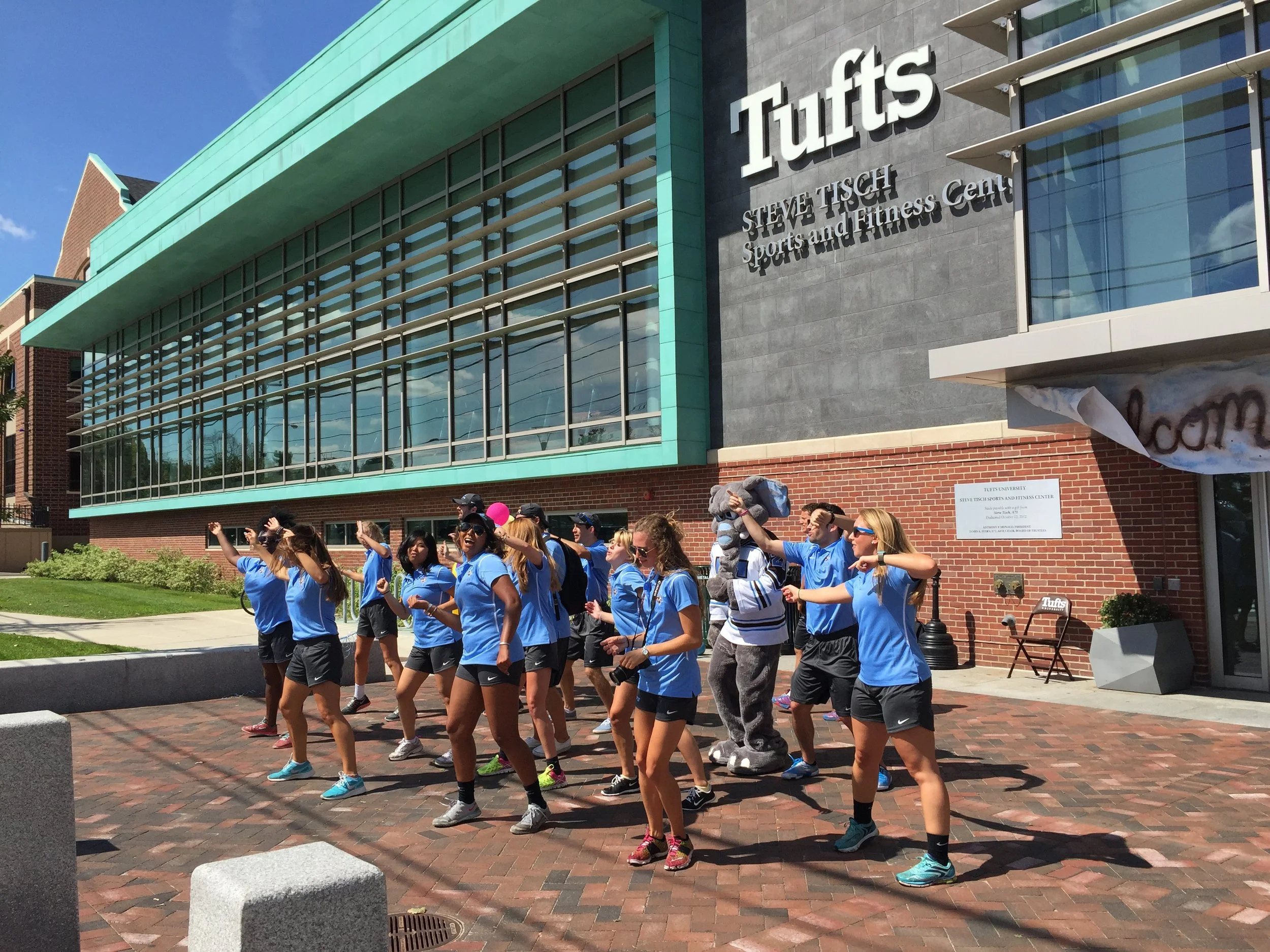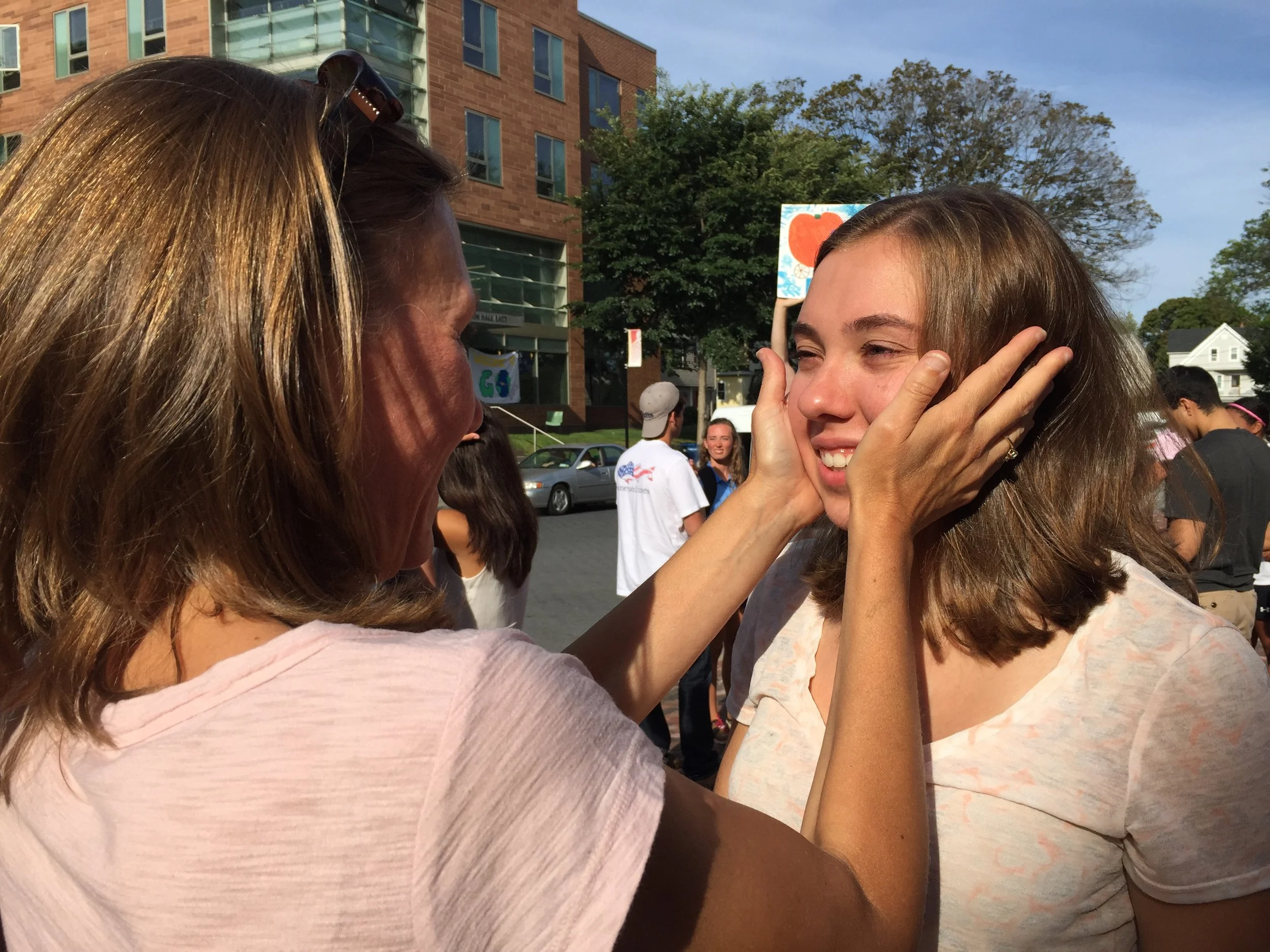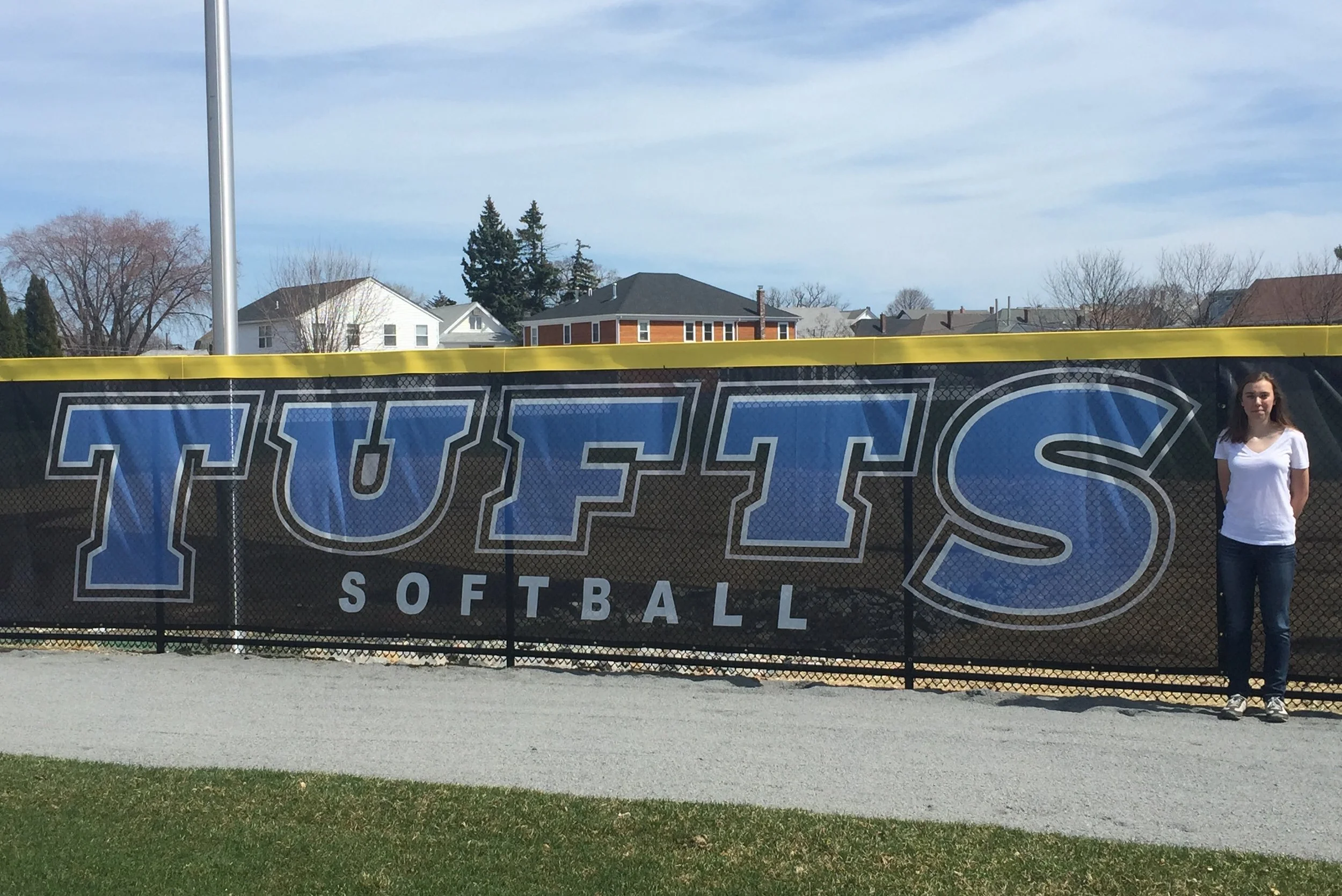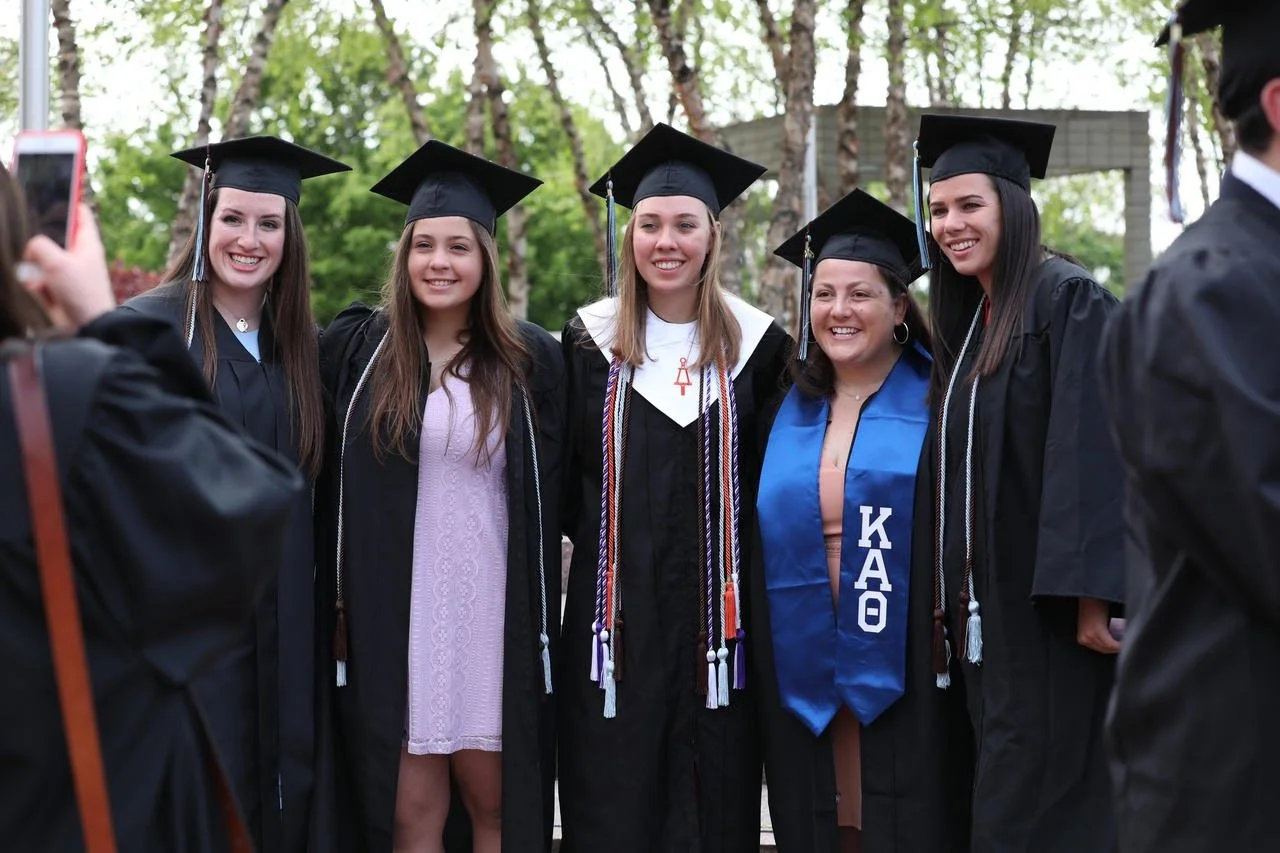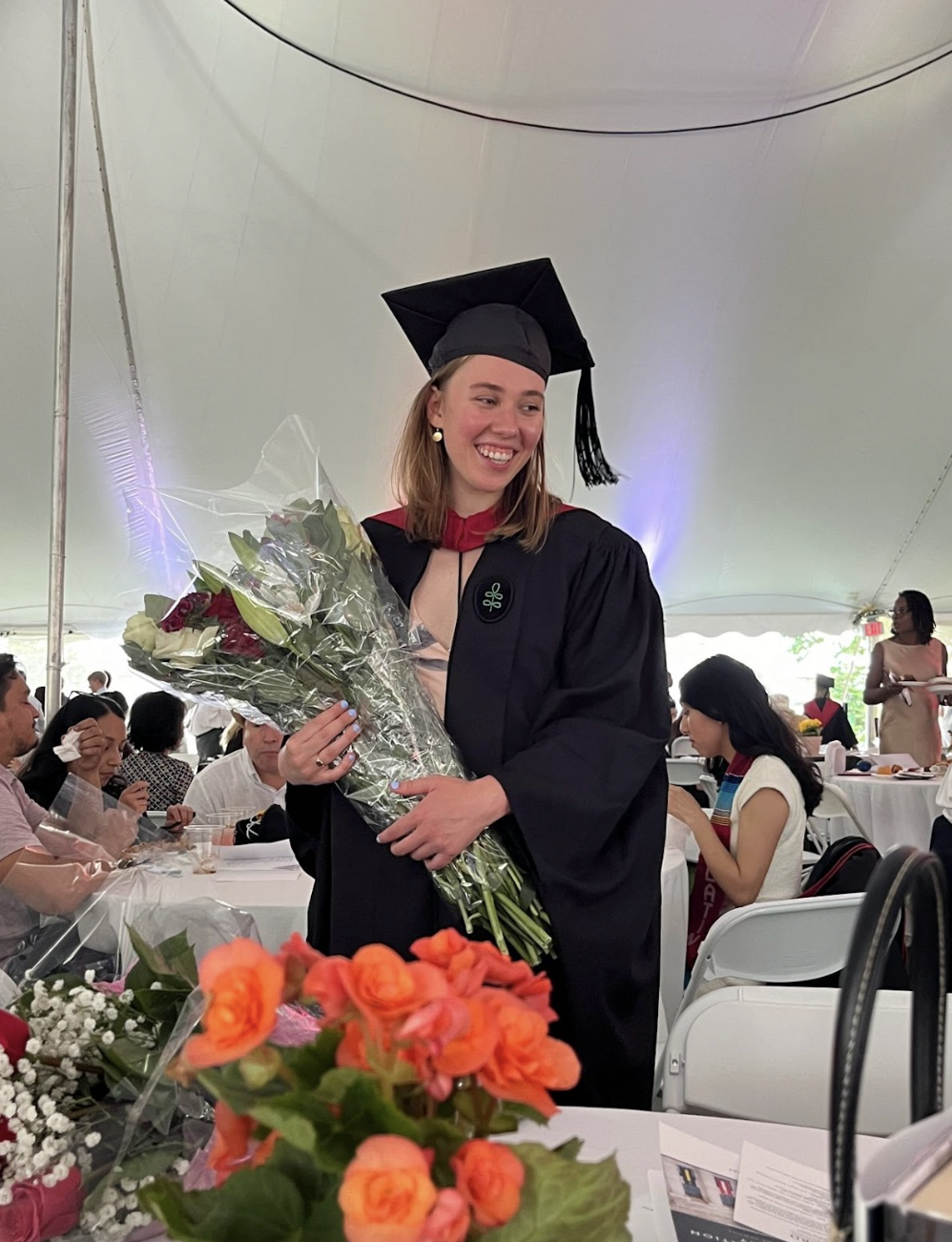The Deep-Fit™ Origin Story
My daughter at her Harvard Medical School master’s graduation — a milestone on her journey that began when she chose a college where she could truly thrive.
Deep-Fit is our approach to helping families identify colleges where their student will thrive. Instead of starting with rankings, prestige, or statistics, we begin with the student—who they are and what they need in order to grow. Then we guide them toward colleges that offer the kinds of experiences research shows matter most for success during and after college.
This approach was shaped by three decades of work with college students—and by my own experience as a parent. When my daughter began her college search, I brought deep expertise—but I had to step back, really listen to her, and center her needs and perspective.
At the start of her college search, I thought engineering would be a natural fit for her—and I know about engineering! She enjoyed and excelled at math, science, and problem solving. She was logical, methodical, and detail oriented. And, she could attend the Massachusetts Institute of Technology (MIT), a top-ranked engineering school, for free because of faculty affiliation. So of course I thought MIT would be a great fit.
However, this was not her perspective. She didn’t think she was particularly good at math—based on her high school’s intense STEM culture—and she didn’t know very much about engineering yet. She took physics her senior year, so at the time of applications, she hadn’t really had much exposure to the science most core to engineering.
She also had a wide range of academic interests. She wondered about biology, applied biology, and biomedical engineering. She was also curious about psychology, international relations, and other fields she hadn’t had a chance to explore yet.
And she didn’t see many students pursuing engineering who “looked like her” or whom she identified with. So she couldn’t yet see herself as an engineer—or at MIT.
She also wasn’t ready to commit to any school through a binding early decision (ED) plan. She needed more time and space to explore and reflect.
As a mother, I worried that she might be losing an opportunity to gain acceptance somewhere through ED that she might not get into in the spring—especially Tufts University, where I suspected her heart was leading her.
(This was well before I later became a dean at Tufts; at the time, I was a dean at Wellesley College.)
As the ED deadline loomed, I suggested she write herself a letter explaining why she wasn’t applying to Tufts ED—something she could return to later if she needed to remember her reasons. Instead, she wrote about why she wasn’t ready to apply early decision anywhere. She wanted to keep exploring, to see where she might be admitted, and to learn more about herself and the schools on her list before making any binding commitment.
It was a reminder of how easily a parent’s sense of what seems best can differ from a student’s lived experience.
From my years as a dean, I knew how profoundly fit shapes a student’s trajectory. I had watched talented students struggle simply because the environment wasn’t right for them, and I didn’t want that for my daughter. So even as my “parent heart” worried, I stayed focused on centering her and meeting her where she was, not where I imagined she should be.
Looking Beyond Good-Fit
My daughter needed an approach that looked beyond the surface-level idea of a good-fit. She needed time to explore who she was and the colleges she was considering. Early decision simply wasn’t aligned with the kind of process she needed.
As a parent, this wasn’t easy. It’s hard when your child’s path is unclear and you worry they might be closing a door you think they’ll want open. But my “dean head” knew that centering her perspective was essential to helping her find a place where she could truly thrive. I trusted that it would work out since I was supporting her in what I have since coined a Deep-Fit college search.
A Deep-Fit college is simply one where a student has the space, support, and opportunities to thrive — and to build the foundation for a meaningful life after college. I knew from years of working with college students that these experiences matter far more than prestige or rankings. And I wanted that for my daughter.
Her College Search
My daughter ended up applying to about a dozen Deep-Fit schools through non-binding early action and regular decision plans. All the schools offered a flexible curriculum where all majors that interested her, including engineering, were accessible and where she would have access to resources to support academic exploration. The schools had extracurricular activities that she was seeking and the promise that she could participate in them. They also offered study abroad programs that matched her academic interests and potential majors. Lastly, the schools provided the academic and social culture she was seeking.
By the time decisions were released, Tufts had become her top choice. Before opening her decision from Tufts, she reread that letter she had written—grounding herself in her own process before seeing the outcome.
She was admitted to Tufts — and she chose to attend.
At Tufts, she began to see students—especially women—who “looked like her” studying engineering, which helped her see that this path was possible for her. On the softball team she had joined that fall, five women were majoring in engineering, offering real examples of engineers she identified with.
She also learned, in a new environment, that she was good at math—something her high school context had made hard for her to see. I still remember her texting me, surprised after earning a high score on a differential equations exam: “I’m really good at math!” Not arrogance — just discovery.
And she discovered through experience that some subjects she thought she might like, she didn’t. I still remember her telling me that psychology felt too “squishy” and not black-and-white enough, that she didn’t enjoy the large amount of reading in her classical civilization class, and that she missed math. And yes, inside, I couldn’t help thinking, “No surprise!”
Eventually, she internally transferred from the School of Arts and Sciences into the School of Engineering to study biomedical engineering, a decision she arrived at through her own exploration and growing confidence.
The orientation welcome at the Tisch Sports and Fitness Center—a joyful sign of the supportive, spirited environment that would help her thrive.
Saying goodbye on move-in day—made easier by knowing she was in the right place to grow.
My Daughter Thrived at Tufts and Created Her Future
At Tufts, my daughter thrived. While at Tufts, she had several strong faculty mentors who cared about her and encouraged and supported her to achieve her goals—and with whom she still maintains a relationship. Since graduating, they’ve invited her to social events and to present to current students in their classes, and they are now a resource for her professionally, serving as a reference.
She had summer research internships at MIT Lincoln Lab in her first- and sophomore-year summers, and before her senior year, she was accepted to one of Tufts signature research programs–the Summer Scholars Program–where she was paid to do research. This work evolved into the senior capstone project required of all Tufts School of Engineering students and a published journal article of which she was the first author.
Outside the classroom, she walked on to the Tufts varsity softball team, for which she played for four years and was a senior captain. She was also an executive board member of Tufts Chapter of the Society of Women Engineers and served as an Engineering Ambassador peer leader to help first-year engineers orient to Tufts.
In addition to achieving her goal of playing softball in college, she was thrilled to fulfill her dream of studying abroad. She spent a semester in Nice, France, advancing her degree, honing her French, and learning through traveling. She made lifelong friends in her engineering classes and through her extracurricular activities. Upon graduation, my daughter won one of Tufts distinctive senior awards.
Visiting the Tufts Softball field on admitted students’ day—hoping she might someday play here, long before she knew all that would come.
Celebrating commencement with her Tufts Softball teammates—one of the communities that shaped her college experience.
Her Path After Tufts
My daughter graduated with a BS in Biomedical Engineering from Tufts in 2019. She applied to and was accepted by several PhD programs, but instead, she went to work as a researcher at drumroll… MIT! After working for a few years at MIT, she enrolled in an MS in Biomedical Informatics degree program at Harvard Medical School, funded by MIT. After she graduated, she returned to her role at MIT where she is applying what she learned.
Looking back, her path makes perfect sense—but at the time, all I could do was center her, listen closely, and trust that this approach would help her find the environment where she could truly soar, wherever that turned out to be. Her journey is what first shaped my understanding of Deep-Fit, and it continues to guide the way I support the students and families I work with today.
Graduating with her master’s from Harvard Medical School, continuing the journey she began at Tufts.

